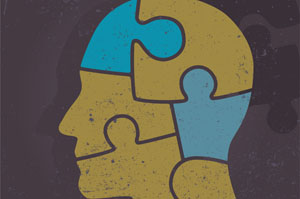When done right, first aid quickly identifies a problem and triages patients so the more urgent cases get treated first and followed up on. Now, with federal aid, that same strategy will apply to the pressing problem of veterans’ mental health.
A push for new funding — and the use of existing funds — may soon make more resources available to help identify vets who need help with depression or other mental illness through the National Council for Behavioral Health’s “Mental Health First Aid training.”
NCBH estimates that less than 50 percent of veterans who need mental health care actually seek and receive treatment.
“The one thing we don’t learn to identify are mental health injuries. If you had a hole in your chest, you wouldn’t walk around with that. This is the same thing,” said Tom Tarantino, chief policy director for the Iraq and Afghanistan Veterans of America, which is teaming up with NCBH.
Training programs like the one supported by NCBH are designed to educate people on the front lines about how to identify early warning signs and how to refer people for necessary treatment.
NCBH and other mental health advocates are seeking part of the at least $15 million allocated to train first responders, which include police, nurses and college administrators, to identify the warning signs of mental illness among veterans, teaching “de-escalation” techniques and referring people at risk to mental health care providers. The president’s budget could provide another $5 million for these grants.
Numerous states have considered similar legislation. For instance, the Mental Health First Aid Act of Illinois was signed into law last year and gives state agencies power to administer mental health first aid. In Texas, MHFA is now a requirement for teacher training and certification, and Arizona last year approved funding for this training. Similar assistance was approved last year by lawmakers in Virginia, Maryland and Nebraska.
NCBH estimates that it costs about $150 dollars to train one person to act as a mental health first responder, and the group already works with states to implement training programs. About 150,000 people have been trained in mental health first aid since 2008.
“We’ve had the support of some extraordinary policy makers on [Capitol] Hill. … We’re grateful to them, but now we need their help to move mental health first aid for the military,” said Linda Rosenberg, president and CEO of the NCBH.
